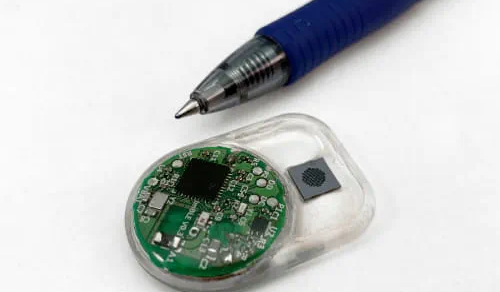Houston Methodist researchers have developed an implant capable of continuously giving medication for different chronic illnesses.
Article Excerpt
People with chronic diseases like arthritis, diabetes and heart disease may one day forego the daily regimen of pills and, instead, receive a scheduled dosage of medication through a grape-sized implant that is remotely controlled.
Researchers from Houston Methodist successfully delivered continuous, predetermined dosages of two chronic disease medications using a nanochannel delivery system (nDS) that they remotely controlled using Bluetooth technology. The nDS device provides controlled release of drugs without the use of pumps, valves or a power supply for possibly up to year without a refill for some patients. This technology will be tested in space next year.
A proof-of-concept paper recently published in Lab on a Chip (online June 25) explains how the Houston Methodist nanomedicine researchers accomplished long-term delivery of drugs for rheumatoid arthritis and high blood pressure, medications that are often administered at specific times of the day or at varying dosages based on patient needs.
“We see this universal drug implant as part of the future of health care innovation. Some chronic disease drugs have the greatest benefit of delivery during overnight hours when it’s inconvenient for patients to take oral medication. This device could vastly improve their disease management and prevent them from missing doses, simply with a medical professional overseeing their treatment remotely,” said Alessandro Grattoni, Ph.D., corresponding author and chair of the department of nanomedicine at Houston Methodist Research Institute.
Current drug delivery devices, such as pain or insulin implants, rely on pumping mechanisms or external ports and typically need refills every couple of months. The Houston Methodist device is implanted under the skin and uses a nanofluidic membrane made with similar technology used in the silicon semiconductor industry. The drug dosage and schedule can be tailored to each patient, and the implant delivers the drugs for many months, even a year, before refills are needed.

Relevance
This article states that an implantable device like this could improve the consistency and accuracy of medication delivery for patients who need constant medication. A device like this one is unique in the fact that it does not require much if any input from the patient. The patient works with their doctor to adjust the device to their specific needs and is able to maintain their care from there.
This automation would ease the mind of the patient, due to the fact that they do not have to worry about constantly giving themselves medication. This technology also prevents issues related to constant injection, and assures that the patient will continually get the care they need. This technology has a lot of potential to grow in the future into other areas of medicine and beyond. Ease of mind through automation of specific persisting processes has proven to be an effective and accepted system.
Sources
Bludau, J. (2019, June 27). Implant device at Houston methodist could deliver your daily … https://www.khou.com/article/news/implant-device-could-give-deliver-your-daily-medicine-by-bluetooth/285-ea4c9725-a900-42d4-bd7e-e9eb4f64fb4a
Houston methodist. Houston Methodist Newsroom. (2019, June 25). https://www.houstonmethodist.org/newsroom/remote-controlled-drug-delivery-implant-the-size-of-a-grape-may-help-chronic-disease-management/




